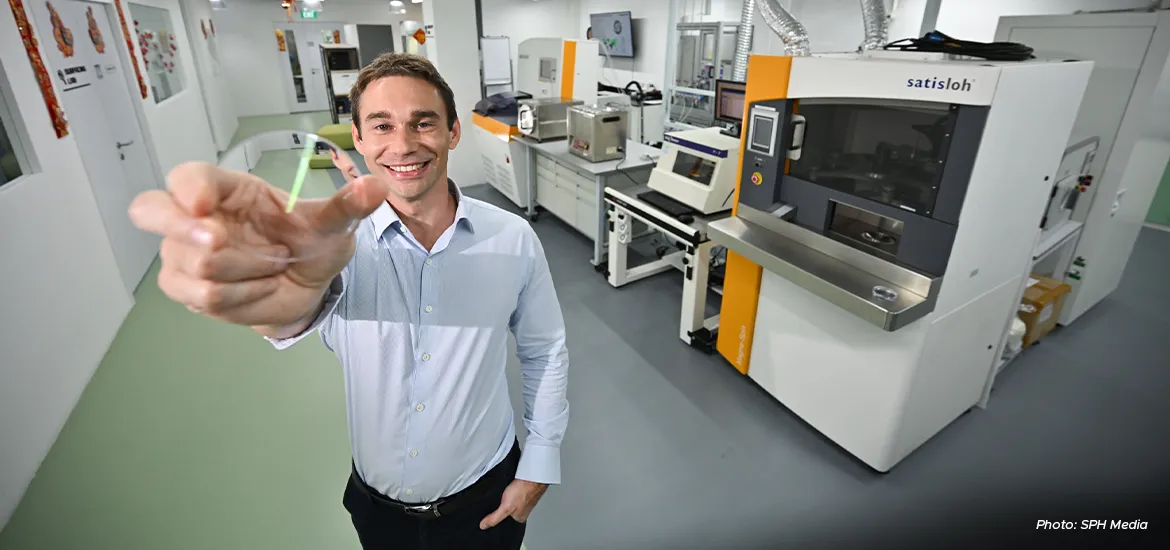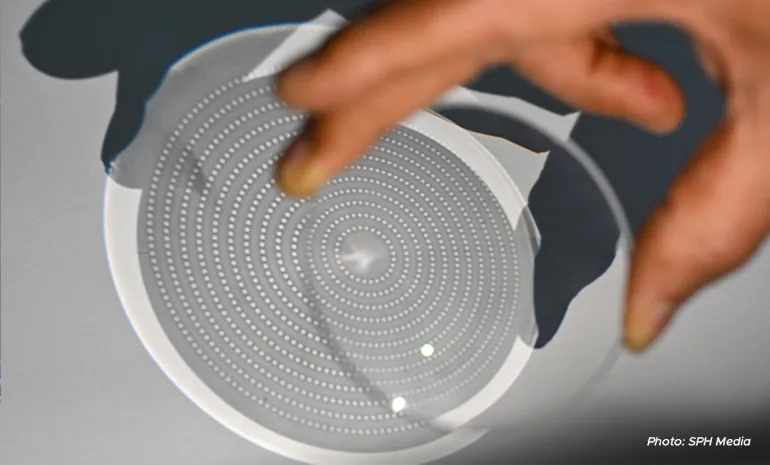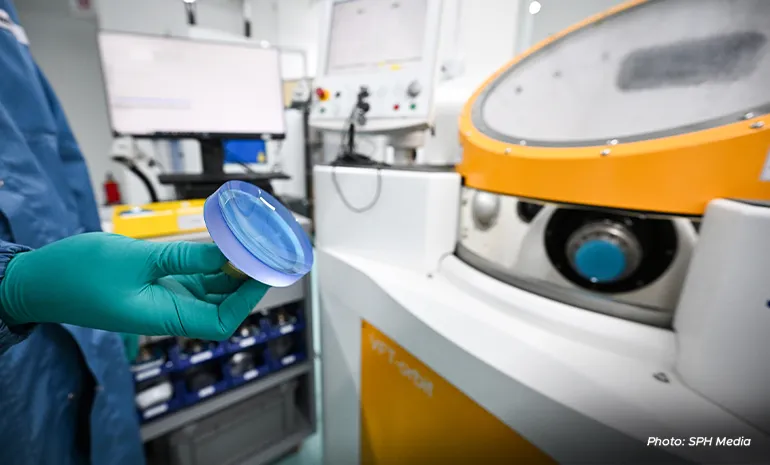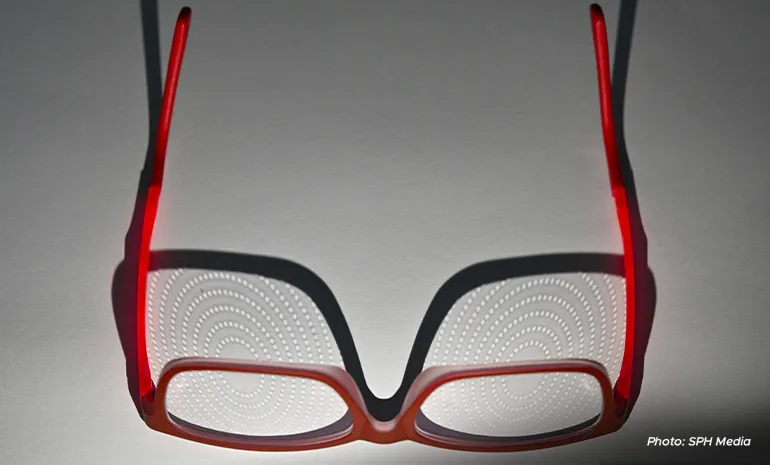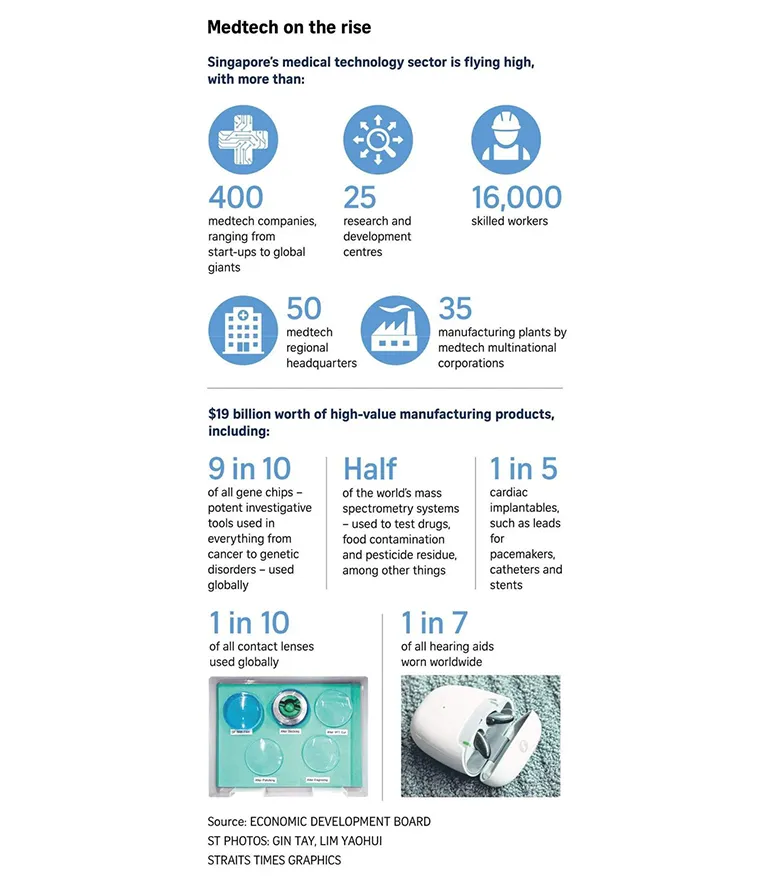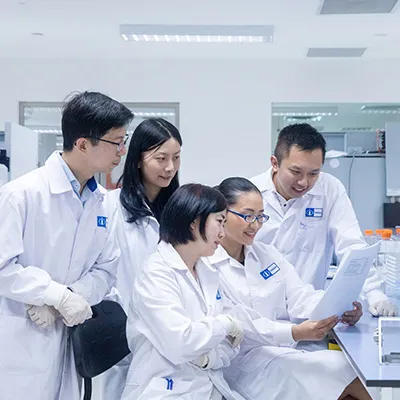One in 10 contact lenses used globally comes from Singapore, as does one in five cardiac-related implants such as surgical structural heart valves, pacemakers and stents.
The Republic also produces half the mass spectrometry systems used worldwide to test for a range of things such as drugs or food contamination, and 90 per cent of gene chips that allow scientists to evaluate and store large amounts of genetic data.
Made-in-Singapore medical devices are not the only ones punching above their weight in this growing market that the Economic Development Board (EDB) estimates will hit US$225 billion (S$304 billion) by 2030 in Asia alone.
An EDB spokesman said Singapore’s medical technology, or MedTech, sector has been growing steadily, with a manufacturing output of S$19 billion in 2022 – a S$2 billion increase over 2021. In 2012, it was S$5 billion.
There are now more than 400 MedTech companies here, employing over 16,000 people – mostly highly skilled technicians, although there is a fair share of scientist-researchers.
